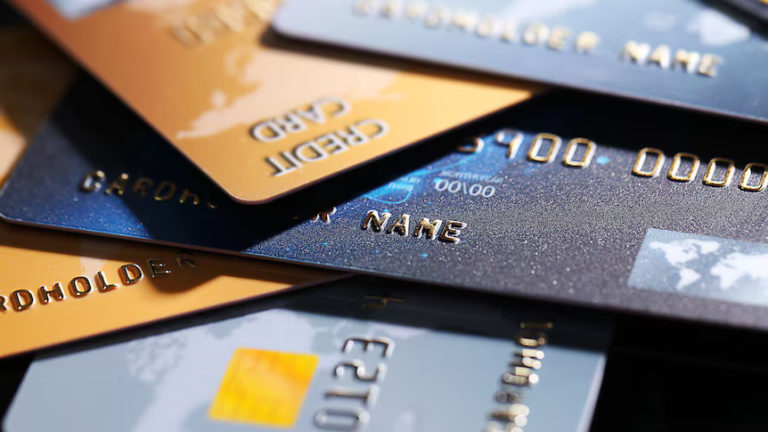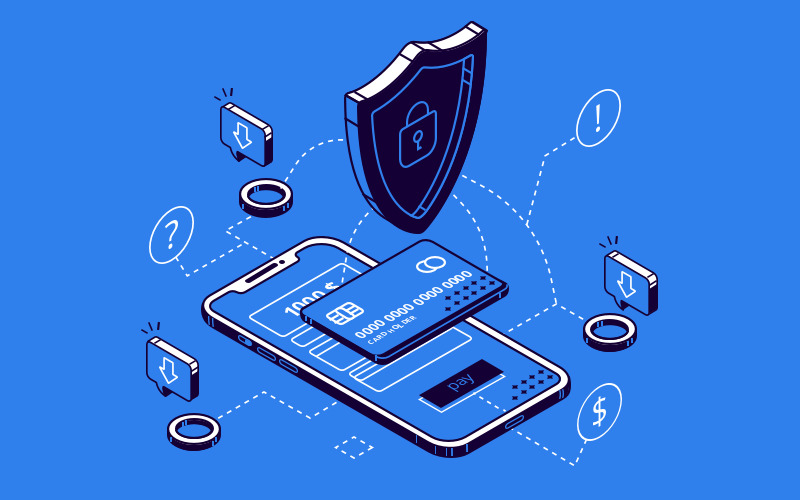- General
- Updated on July 12, 2025
Decoding Credit Cards vs. Debit Cards: Which is Right for You?

Choosing the right payment method is essential for managing your finances and ensuring that you can handle everyday transactions with ease. Among the most commonly used payment methods are credit cards and debit cards. While they may appear similar, each card type has distinct features, benefits, and risks. Understanding the differences between credit and debit cards can help you make an informed decision about which is best for your spending habits, financial goals, and lifestyle.
In this blog post, we will compare credit cards and debit cards, explaining how each works, their advantages and disadvantages, and which one may be more suitable for different financial situations.
What is a Credit Card?
A credit card is a payment tool that allows you to borrow money from a financial institution, such as a bank or credit card company, to make purchases. Essentially, when you use a credit card, you are borrowing money that you agree to pay back later, often with interest.
Credit cards come with a credit limit, which is the maximum amount you can borrow at any given time. At the end of each billing cycle, the card issuer sends you a statement detailing your balance, minimum payment due, and due date. You have the option to pay the full balance or make a partial payment, with interest being charged on any remaining balance.
Benefits of Credit Cards

Credit cards can offer several significant advantages when used responsibly, helping you build a strong financial foundation. However, it’s important to be aware of the potential drawbacks as well.
1. Build Credit History
Using a credit card responsibly is one of the best ways to build your credit history and improve your credit score. Making timely payments and keeping your balance low relative to your credit limit can help demonstrate your ability to manage debt, which is essential for future loans, mortgages, or car financing.
2. Rewards and Benefits
Many credit cards offer rewards, such as cashback, travel points, or discounts on purchases. These rewards can add up over time, providing you with valuable perks for everyday spending. Some credit cards also offer additional benefits like extended warranties, purchase protection, and travel insurance.
3. Purchase Protection
Credit cards often provide purchase protection, which means you may be able to dispute a transaction if there is an issue with the product or service you purchased. This added layer of protection can be valuable when buying high-ticket items or making online purchases.
Drawbacks of Credit Cards
While credit cards offer several benefits, they also come with certain risks that need to be carefully managed.
1. High-Interest Rates
One of the main disadvantages of credit cards is the high-interest rates charged on outstanding balances. If you don’t pay off your balance in full each month, interest charges can quickly accumulate, leading to increased debt over time. This is why it’s important to manage credit card usage carefully to avoid unnecessary interest payments.
2. Risk of Debt
Credit cards make it easy to overspend, especially if you don’t keep track of your balance. Without proper budgeting and discipline, it’s easy to accumulate debt that becomes difficult to repay. If you don’t make your payments on time, you may also face late fees and damage to your credit score.
What is a Debit Card?
A debit card is a payment tool that allows you to access the funds in your bank account to make purchases or withdraw cash from ATMs. When you use a debit card, the money is immediately deducted from your checking or savings account. Unlike credit cards, there is no borrowing involved; you can only spend the money you already have.
Debit cards are often linked to a personal bank account, and most banks issue them for free or for a small fee. They can be used for a wide range of transactions, including shopping, online purchases, and paying bills.
Benefits of Debit Cards
Debit cards are a straightforward and effective way to manage daily finances, offering several advantages that make them a preferred choice for many consumers. However, it’s important to understand both the benefits and limitations before deciding which is right for you.
1. No Interest or Debt
Since you are spending your own money with a debit card, there is no risk of accumulating debt or paying interest on purchases. This makes debit cards a safer option for people who are concerned about managing credit card debt or those who prefer to avoid borrowing money.
2. Easy Budgeting
Debit cards offer an easy way to keep track of your spending because the money is immediately deducted from your account. This can make budgeting simpler, as you always know how much money is available in your account. Many banks also offer mobile apps that allow you to track your transactions in real-time, helping you stay on top of your finances.
3. No Fees (or Minimal Fees)
Most debit cards come with little to no fees, especially if you use your card for standard purchases and avoid overdrawing your account. There are no annual fees, and you won’t face late payment fees as you would with a credit card. However, some banks may charge for out-of-network ATM withdrawals or overdrafts.
Drawbacks of Debit Cards
While debit cards offer many benefits, they also have some limitations that should be considered before deciding to use them for all your transactions.
1. Limited Rewards
Unlike credit cards, debit cards typically don’t offer rewards programs, such as cashback or travel points. While some banks may provide minimal rewards for debit card usage, they generally aren’t as lucrative as credit card rewards.
2. Limited Purchase Protection
Debit cards generally offer fewer protections than credit cards. While some banks may provide basic purchase protection or fraud protection, it’s not as comprehensive as the protections offered by credit card companies. For instance, disputing fraudulent charges or issues with products may be more difficult when using a debit card.
3. Overdraft Risks
If you don’t have sufficient funds in your bank account, a debit card transaction may result in an overdraft, potentially leading to fees or declined transactions. While some banks offer overdraft protection, it’s not a guarantee, and frequent overdrafts can lead to additional charges or account closure.
Credit Cards vs. Debit Cards: Which is Right for You?
Both credit cards and debit cards have their advantages and drawbacks, and the right choice depends on your personal financial situation, spending habits, and goals. Here’s a breakdown to help you decide which is best for you:
When to Choose a Credit Card
- Building Credit: If you’re looking to build or improve your credit score, a credit card is a great tool. Using it responsibly and paying off your balance each month can help boost your credit history.
- Rewards and Benefits: If you frequently make large purchases or travel, a credit card may be the better option for earning rewards, cashback, and enjoying travel-related benefits such as insurance and perks.
- Purchase Protection: If you’re making big-ticket purchases or shopping online, a credit card’s purchase protection can give you peace of mind.
When to Choose a Debit Card
- Avoiding Debt: If you prefer to avoid the temptation of overspending or accumulating debt, a debit card is the better choice. You can only spend what’s in your account, which makes it easier to stick to a budget.
- Simple Transactions: If you primarily make small, everyday purchases and want a simple, straightforward payment method, a debit card provides easy access to your funds without the hassle of managing credit.
- Lower Fees: If you’re looking to avoid high interest rates and annual fees, debit cards often come with minimal charges, making them a cost-effective option for regular use.
Read Also : PAN Card Correction Form Online- Step by Step Guide
Conclusion
In the debate between credit cards and debit cards, the right choice ultimately depends on your personal preferences and financial goals. Credit cards can be a powerful tool for building credit, earning rewards, and enjoying purchase protection, but they also come with the risk of debt and high-interest rates. On the other hand, debit cards offer a simpler and more controlled approach to spending without the risk of overspending, but they come with fewer benefits and protections.
By understanding the advantages and disadvantages of each, you can make an informed decision about which payment method is best suited for your financial needs. Whether you’re building credit or simply trying to manage your budget, both credit and debit cards have a place in a well-rounded financial strategy.
Join the discussion
Related Articles
No results available
ResetTrending Articles


- General
- Updated on March 2, 2026


- General
- Updated on February 26, 2026


- General
- Updated on February 23, 2026


- General
- Updated on February 20, 2026


- General
- Updated on February 18, 2026


- General
- Updated on February 17, 2026


- General
- Updated on February 10, 2026


- General
- Updated on February 14, 2026


- General
- Updated on February 7, 2026


- General
- Updated on February 5, 2026
No results available
Reset


